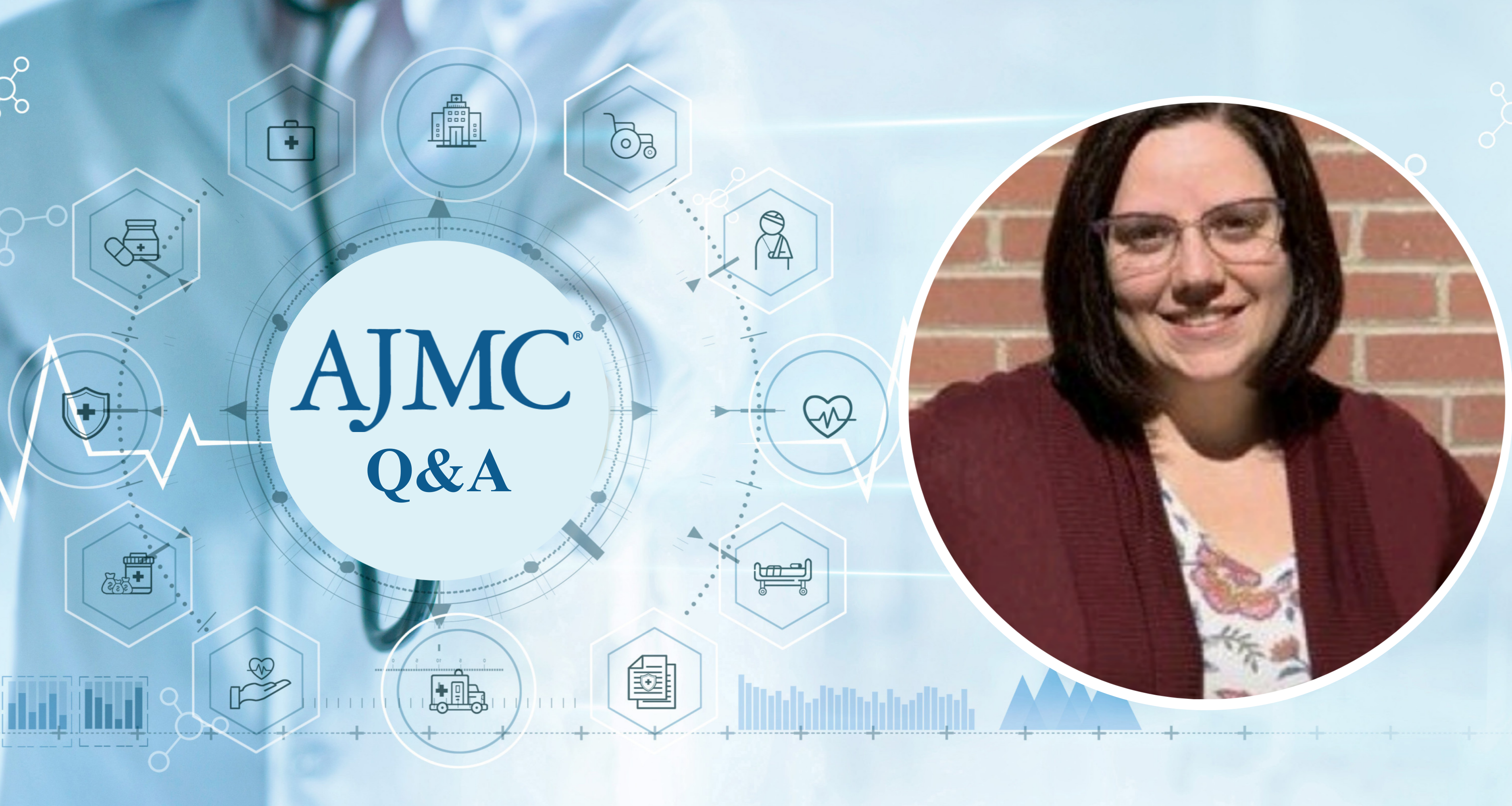- Center on Health Equity & Access
- Clinical
- Health Care Cost
- Health Care Delivery
- Insurance
- Policy
- Technology
- Value-Based Care
A Q&A With Dr Sarah Hogue: Expanding the Role of Oncology Pharmacists
Sarah Hogue, PharmD, director of oncology services at St. Luke's Cancer Institute, discusses trends of pharmacists and technicians taking on more clinical responsibilities in oncology, improving patient care, and efficiency.
Sarah Hogue, PharmD.

Sarah Hogue, director of oncology pharmacy services at St Luke's Cancer Institute, explains how pharmacist roles can be expanded during the panel "The Increased Visibility of Pharmacy in Cancer Care" at the Patient-Centered Oncology Care® (PCOC) 2024 meeting from The American Journal of Managed Care® (AJMC®).
AJMC: Can you describe specific examples of how pharmacists and technicians have taken on more clinical responsibilities in the oncology setting? Have you seen an impact on patient care outcomes?
Hogue: We have a pharmacist doing all sorts of cool things outside of the pharmacy itself, taking on more clinical responsibilities. Our pharmacists operate under a collaborative practice agreement, which is really robust. And so our pharmacists manage all sorts of things, from antiemetic for patients that are receiving chemotherapy to managing other side effects, infusion reactions. We pretty much run [treating] infusion reactions in the infusion center without needing provider support and making clinical decisions as to what medications to give patients.
We also manage all the patients premedications. Once the provider decides what the patient is going to be on, we manage all supportive care medications. Being able to take that off the provider's plate so they can really focus on making those decisions for cancer treatment has been really successful for us in the clinic.
AJMC: What regulatory or legislative changes would you like to see to further empower oncology pharmacists and technicians and streamline operations?
Hogue: Legislation, of course, [to give] provider status for pharmacists is a huge thing that we're trying to push for. We're making a little bit of headway, but it's here and there so recognizing pharmacists as providers would be a huge benefit to our oncology patients, allowing pharmacists to really help mitigate physician shortages that we're seeing in oncology, being at the bedside, being able to take care of patients, because we have the clinical knowledge to be able to do that.
For streamlining operations, one of the big things that we've been pushing against is white bagging. I know this is kind of a tale as old as time but it's still definitely prevalent as insurance companies keep trying to mandate that medications be sent from random pharmacies across the country for us to infuse and that's really dangerous for our patients because we don't know how those medications were stored. We also don't have any control over how the medications were sent to us, and then we're the ones that are taking all of the risks.
If a patient has an infusion reaction, or something happens and the medication is not efficacious, then we're taking on that risk, even though the medication isn't even coming from our pharmacies. So, legislation to push our insurance companies to allow us to buy product directly from manufacturers or from our wholesalers to administer to patients is really the safest and would smooth operations because it's a lot of administrative work for us to manage those medications if they're being sent to us from not our normal streams.
AJMC: What are your predictions for the future of automation in oncology pharmacy? Are there any emerging technologies or trends that you are particularly excited about?
Hogue: Automation is definitely a big topic right now. I think one of the things that I am really excited about that we are doing at our health system is we are just about to open a consolidated service center. That is basically a huge warehouse that will have a lot of automation inside that warehouse but it will be able to provide us 60 days worth of medication on hand in Boise, Idaho, where we wouldn't have to rely on our third party wholesalers to get those medications.
This will be huge for us in being agile with drug shortages. Drug shortages have been a huge issue for us over the past 6 months to 2 years and allows us to be more nimble with our inventory. There's also a lot of automation or technology that we're bringing in to help us with inventory management so that we can really be proactive with looking at what our power values are that we need for medications. A lot of that is manual work that we have to do right now with pharmacy technicians so that would free up a lot of manpower to be able to do more clinical things to help our patients.
